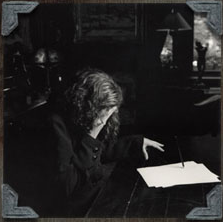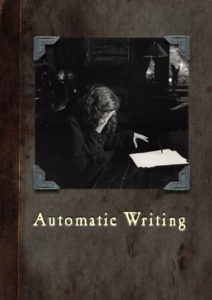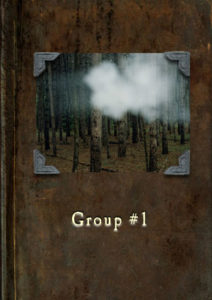Automatic Writing and Group #1

Automatic Writing
If, as the scholar claims, a photograph is a sudden death, if the historian’s citational practice is cousin to the photographer’s, is citation a form of dissection? We can easily picture history’s body on the autopsy table, but such metaphor allows us to stop short of mortification, the conceit a kind of body bag shielding us from the corpse. The historian, however, holds in her hand the blade beneath which perforations emerge, each image or fact a spillage issuing from a tissue of forensic interest—proof of what, exactly? An earlier era would have made of the corpse a moral lesson, “its being laid in the dark and silent grave, there putrifying and rotting and becoming exceeding loathsome and being eaten with worms an image of the misery of hell.” But we prefer to figure the historical not as corpse but as ghost, saying, with the scholar, “there is no word or image that is not haunted by history.” We believe such hauntedness saturates the present and affects the living, and in this sense perhaps all historians are Spiritualists, each asking the material for access to another realm, one outside the archive. Such mediumship is called sensitivity, its crucial question not, Is there life after death, but where does the outside commence and how do its boundaries touch our own? History now not only behind us, the question allows us to speak of our death long before our death, the photograph a cup held to catch gossip at the parlor door. With it I put my right ear to the archive and hear Martha say: “Mr Billings sends much love to you all, and so does Mrs B says she is very much obliged to Abby for those little socks, they are the prettiest she ever saw—”
Discursive Glance
Photography’s Expanded Field
its spine a hinge
between the twenty first and nineteenth centuries
the book in the archive
opens
where history
would have poetry reflect on itself
ghost-image of the frontispiece
kissing its progenitor
through tissue
I write this
not as a lyric subject
but as one subject to another time
faint stain on my countenance
an ink
a logic
like the concept of conscience
continually returning to haunt itself
I mean I am most myself
not as the original
etching
or as the accident
transfer made by age on the title page
but as the tissue
the transparency
that enables history
to make the book a mirror of itself
when its covers close
it touches its own image through me
I can’t say it sees
the philosophy of sleep
fatigued soul
partially withdrawing itself
from physical structure
gathering inwardly
a history
of history reading itself
a willingness to make inroads
into the invisible
evidence
not readily apprehended
by established categories
less a question of the veracity of another world
or time persisting
than of the desire
to visit it
when I close the book
it goes to sleep
touching itself
and begins to dream
pictures
not language
who can say another’s desire is false
tissue between
text and image
each of us enmeshed
with its other
Return
an entire day given over to
headache a kind of pencil
pierced through the visual field
at the lake in the park an egret
next to the sculpture of an egret
like the rhyme of sight and sign
one by one the passersby say
“what the hell” because
I heard my dead father talking
on a cell phone on the path
behind me the old man also
wearing his cologne proves
rhyme is uncanny one word
haunted by another sidereal
migrainous aura I’m crying
rhyme the concept of the other
in the same another world in this one
I can find words for only a fragment
Group #1
Dearly belated—we err, we errand where the photographic & the transcendental meet in time & thought. A picture is there even when we can’t see one, the image in the world like the soul sojourns in the body, all the stranger for its latency. Dim at first sight, pleasant in miniature, the woods look subliminal. Pines’ trunks as brown stippled black as the ground of needles is soaked ochre & pricked with green, we turn to stronger light & find the fugitive spirit embodied. The longer we look & the brighter, the more the image seems ours only, a mirror with a memory. The trees, too, seem dearly copied, clear and distinct, but unreal where touched by another. Perhaps it’s there the image most remains to be seen, or it waits there to be developed—it’s hard to say. Perhaps this feeling of monopoly, love, in its selfishness, likes in likeness. Perhaps its grip stains our image of this world.
Discursive Glance
Photography’s Expanded Field
My body on its back—
asleep and yet
not my body
it seemed I was in the world
I was not
Gradually my senses opened
Calm and happy and deeply interested
I was a traveler
and death only a circumstance
I couldn’t see
a road steep into pine country
snow on the ground
white and untrodden
I lost my way
but a stranger directed me
Afterwards I found
the direction wrong
but I’m as sure someone spoke
as I would be if she’d spoken the truth
Incredulity proves nothing
whether recognized or not
whether understood or not
A fact is true
it exists
a piece of the universe
Then it was over
I came back
They brought me up the faded steps
red-patterned with roses
I saw the hat-tree with my old coat
and I listened to their feet
I did not notice or think
I had been left in the cold
and had come back
spasmodically
and in fragments
The windows of my room were open
wind washed in
vast accumulating waves of thought
They say the senses fear death
but I was a mind against matter
Lord—
I had said
Give me solid fact
noise I can hear
motion I see
Move these substantial objects
A table
stir it
A cabinet
open and close it
Let shake
the atmosphere
and earth
As a farmer in church has
his special prayer for rain
so give me
something solid
and I will believe
to be born is the door
to die is the hinge
Open the liminal
and I will go in
Not in This World To See His Face Again
because I tired of what I know
& my manner of knowing it
I looked in at the photograph
outside the window
travel smearing the fields
it is always hard to tell
where the image lies
between departure and arrival
little napkin of smoke
laid over the face of it
I looked in at his sleeping face
history toward which we carried
flowers made of his hair
oh mother how tired I shall be
singing
Sources
“Discursive Glance”:
Eduardo Cadava, Words of Light: Theses on the Photography of History
Jacques Derrida, Archive Fever: A Freudian Impression
Jonathan Edwards, Images of Shadows of Divine Things
Martha Crane Olney, personal correspondence, “Alton Nov 19th 1854”
Judith Richardson, Possessions: The History and Uses of Haunting in the Hudson Valley
“Photography’s Expanded Field”:
Geoffrey Batchen, Burning with Desire: The Conception of Photography
Andrew Jackson Davis, The Great Harmonia; Being a Philosophical Revelation of the Natural, Spiritual, and Celestial Universe, Volume 1.
Jacques Derrida, Archive Fever: A Freudian Impression
Jeffrey Todd Knight, “Invisible Ink: A Note on Ghost Images in Early Printed Books.”
“Return”:
Jacques Derrida, “The Death of Roland Barthes”
This article originally appeared in issue 12.3 (April, 2012).
A former National Endowment for the Arts fellow, Brian Teare is the recipient of poetry fellowships from the MacDowell Colony, the American Antiquarian Society, and the Headlands Center for the Arts. He is the author of The Room Where I Was Born, Sight Map, the Lambda-award winning Pleasure, and Companion Grasses, forthcoming from Omnidawn in 2013. An assistant professor at Temple University, he lives in Philadelphia, where he makes books by hand for his micropress, Albion Books.

